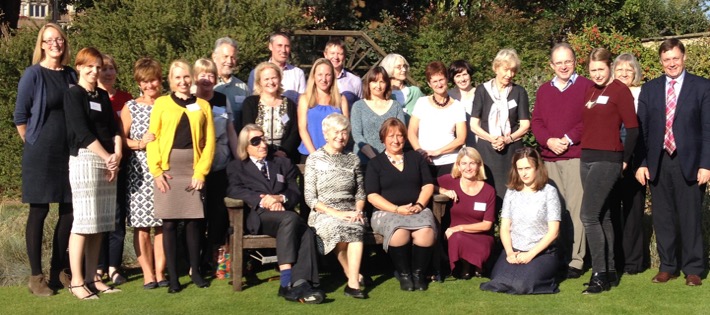Continuity of Care; Sheila Kitzinger Programme
Published on: 15/04/2016
On the 2nd – 3rd October 2015, MAMA Academy’s CEO Heidi Eldridge, had the privilege of spending the weekend at Oxford’s Green Templeton College with the UK’s leading maternity healthcare professionals.
The Sheila Kitzinger Programme at Green Templeton was established in 2015 in honour of the life and work of social anthropologist Sheila Kitzinger, who died in April 2015. Sheila Kitzinger was a high-profile feminist campaigner across a broad range of issues. As The Guardian noted on her death: “She had two passionate concerns in life: the marginalisation of people who did not fit into society for some reason, and women and childbirth.” The Sheila Kitzinger programme is funded by Sheila’s husband, Uwe Kitzinger, Honorary Fellow of Green Templeton College, former Director of the Oxford Centre for Management Studies (1980-84) and the first President of Templeton College (1984-1991).
An invited group of lay and professional experts in pregnancy and maternity care met for two days of presentations and intensive discussion of the evidence around continuity in midwifery-led care. Participants included Baroness Julia Cumberlege, chair of the National Maternity Review, Sheena Byrom, Donald Peebles and ws curated by Lesley Page, President of the Royal College of Midwives.
The final report of the research seminar – which fed directly into the National Maternity Review – was published yesterday by Green Templeton College and King’s College London and provides a comprehensive review of the current evidence of the benefits to women, their families and the National Health Service, of continuity of midwife care. It draws together the most recent evidence supporting continuity of midwife care and contains wide-ranging testimony from mothers, midwives, doctors and NHS managers about effective models of midwife care.
Despite good evidence of benefit, there has been little sustainable development of relational continuity models of care in the NHS. Past attempts at providing continuity of care, since publication of Changing Childbirth (Department of Health 1993) highlighted its importance, have not become mainstream. However, the evidence is now too strong to ignore. Continuity models of maternity care improve outcomes for women and for babies, and women who receive care from a known midwife have better experiences of maternity care and fewer interventions.
This report suggests that relational continuity be scaled up because there is compelling evidence that ongoing supportive relationships between women and their maternity care provider improves outcomes and experiences of care. Outcomes improve for women at both low and high risk of medical and obstetric complications, and benefits of continuity are also experienced by women with complex social problems, longstanding histories of mental illness, socio-economic deprivation and those from black and minority ethnic backgrounds. These are the very groups who are at higher risk of maternal and infant death and morbidity as a result of pregnancy and birth, and who more often experience failures in care.
Read the full report; Relationships: The pathway to safe, high-quality maternity care
